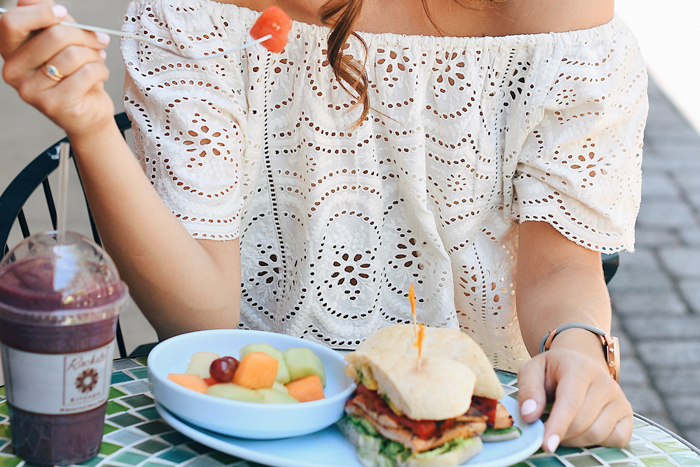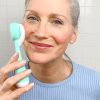 Feature Image by Alexa Suter
Feature Image by Alexa Suter
If you struggle with your relationship with food, you’re not alone: About 30 million Americans currently suffer from an eating disorder, and many others suffer from less severe cases of disordered eating. It’s hard to have a perfectly healthy relationship with food, after all, when you’re constantly surrounded by messages that your body isn’t good enough. But it is possible to heal from these kinds of issues and to improve your relationship with food no matter where you’re at in your journey.
Here are some ways to develop a better relationship with food.
Focus on adding, not subtracting.
With all the messages out there about cutting calories, the thought of adding to your diet might sound contrary to your health goals. But getting enough healthy food is more important than avoiding less healthy foods — and the former helps you do the latter.
“When I think about adding goodness to my life, I think a lot about what I’m using to fuel my body,” says Dr. Tasha Holland-Kornegay, licensed professional counselor and founder of Our Treatment Center. “Instead of eating less of this, or cutting that, I’m adding wholesome, nutritious food that fills me up and keeps me going. And just like that, I’m treating myself to something that makes me feel good, and I no longer have room for foods that don’t.”
Eat in a pleasant environment.
Eating alongside good company and in a positive setting can make your experience of food itself more positive. “Spending time with your family in the kitchen is a great way to connect, unwind, and build on healthy relationships,” says Holland-Kornegay. “If you live alone, try putting on some relaxing music and using your time to reflect on your day.”
Practice affirmations.
If you have insecurities around weight or body image, one way to deal with this is to recite affirmations such as “I am beautiful” and “I am sexy,” or more specific food-related ones like “I make healthy meals for my family,” in front of the mirror, says board-certified nutritionist and alternative therapist Agatha Repice, owner of CleanClearBody. “Journal after doing this and see what comes up,” she suggests. “Often, it’s old childhood wounds, things we didn’t want to look at or address, or memories that hurt us deeply.”
Notice how different foods make you feel.
Everyone’s body is different, so instead of labeling foods “good” or “bad,” notice how you feel after eating different things, keeping track of this by journaling if you’d like.
“If you just look at food as fuel, now you’re looking at: What are the foods that feel good in my body? What are the foods that don’t feel good in my body? What are the foods that give me energy? What are the foods that don’t give me energy?” says therapist Debbie Gottlieb, LCSW. “These questions will begin to improve your relationship with food.”
As always, if you or someone you know is struggling with their mental health, reach out to a therapist or licensed professional for guidance.
xx, The FabFitFun Team




